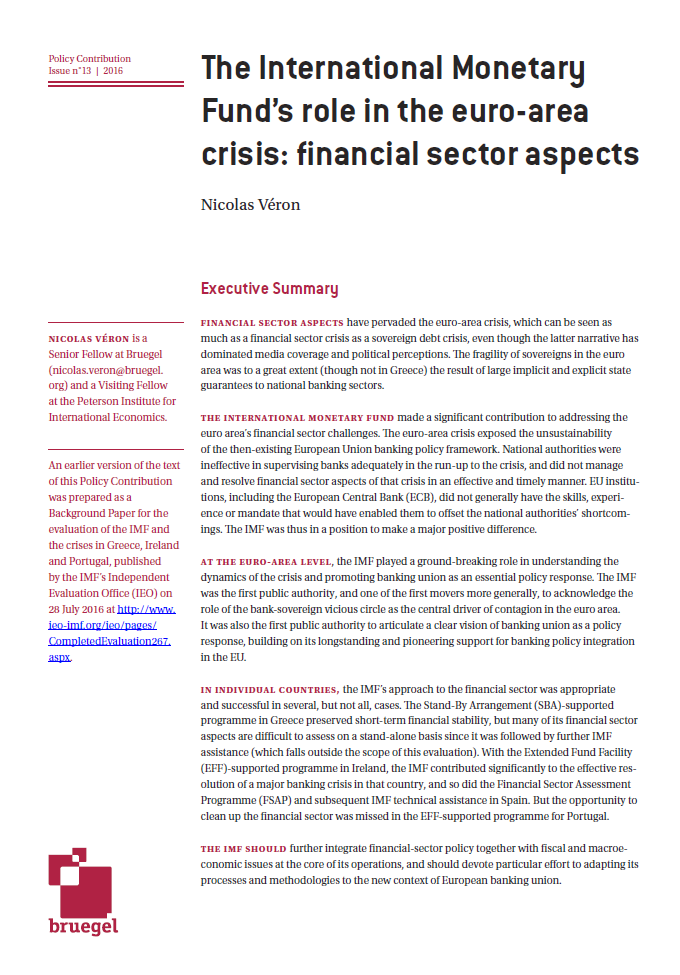Blog Post


Is the ECB collateral framework compromising the safe-asset status of euro-area sovereign bonds?
Central banks’ collateral frameworks play an important role in defining what is considered as a safe asset. However, the ECB’s framework is unsatisfactory because it is overly reliant on pro-cyclical ratings from credit rating agencies, and because the differences in haircuts between the different ECB credit quality steps are not sufficiently gradual. In this note, the authors propose how the ECB could solve these problems and improve its collateral framework to protect its balance sheet without putting at risk the safe status of sovereign bonds of the euro area.


